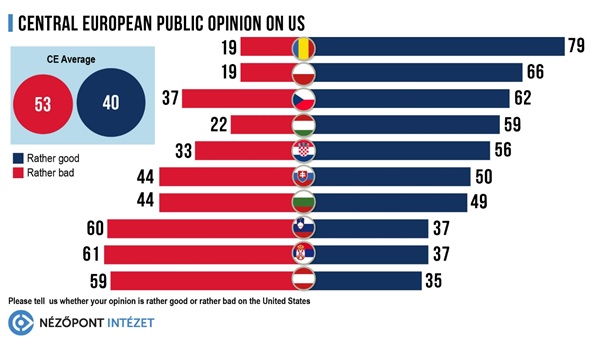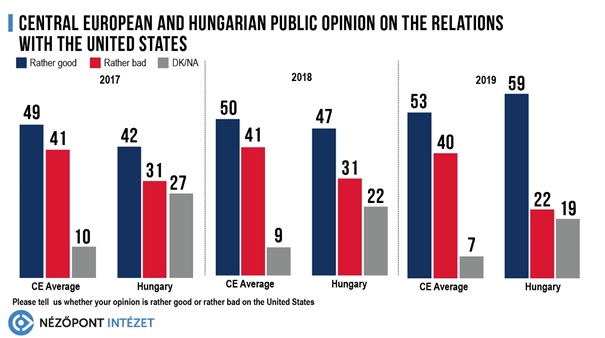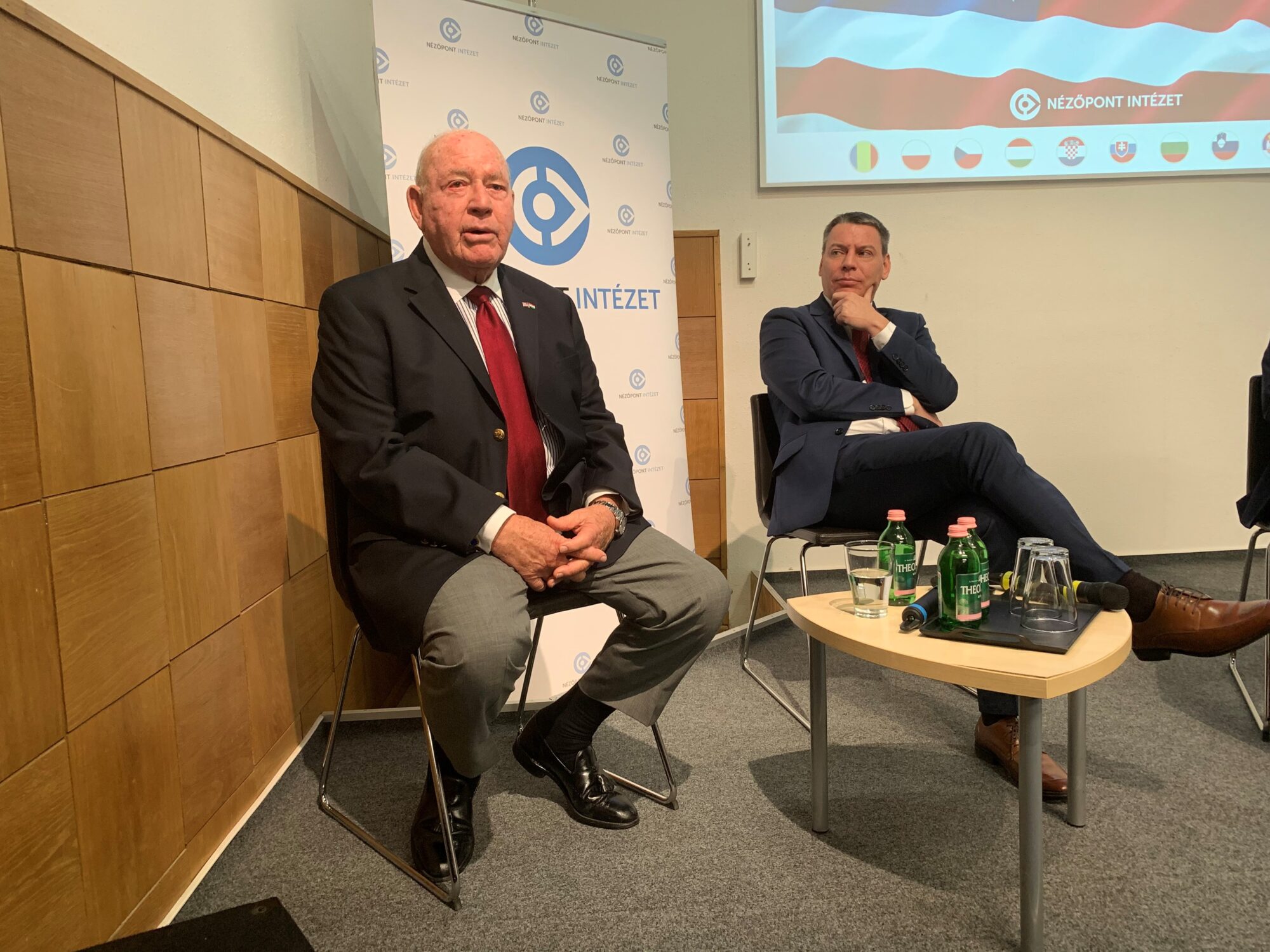Cooperation is further strengthened where there is agreement and understanding between two countries, said David B. Cornstein, U.S. Ambassador to Hungary in his remarks at Nézőpont Institute. A poll conducted by Nézőpont in 10 countries of the region, the results of which were presented at the event yesterday, found that the majority of Central Europeans views the United States favorably, and more Hungarians than the regional average have a positive opinion of the United States.
On Monday, David B. Cornstein, U.S. Ambassador to Hungary, visited Nézőpont Institute, where he and the institute’s analysts discussed relations between the United States and Central Europe, with special regard to Hungary.
Central European countries are the natural allies of the United States, which is reflected in the positive attitudes towards the U.S.A. that characterize the region, said Ágoston Sámuel Mráz, Director of Nézőpont Institute in his presentation. This positive image of America can also be attributed to the fact that Donald Trump pays special attention to the region, and is looking forward to cooperating with its countries. This was clearly visible in the first two years of the Trump administration, with the President having conducted bilateral discussions with the region’s leaders 11 times, and with one of his first trips abroad having been to Poland.
The Central European public overall has a favorable attitude towards the United States. 53% of the respondents in the regional survey said they had a positive, and 40% said they had a negative opinion of the U.S.A., Mráz highlighted in his presentation. In the region, Romania (79 percent) and Poland (66 percent) have the highest percentage of those with a favorable view of America, which may be explained by geopolitical considerations related to the proximity of Russia. The United States is the most rejected in Serbia (61 percent) and Austria (59 percent.) In the case of Austria, the cause may be the country’s neutral status, while in Serbia the Balkan war’s experience is the most likely to have shaped negatively America’s image.

The Hungarian public has the fourth most favorable opinion of the United States in the region, with 59 percent of respondents having a positive, and only 22 percent a negative opinion of the U.S.A., which is above the regional average. The favorable opinions about America have been on the rise continuously over the past three years, since Donald Trump’s presidency. In 2017, 42% of Hungarians had a positive opinion, in 2018, that number was 47%, while by 2019 it significantly increased, to 59%. The positive changes may have been generated by the appointment, after a close to one-and-a-half-year long gap, of a new Ambassador to Hungary in June 2018, in the person of David B. Cornstein, and in May 2019 the President welcomed Prime Minister Viktor Orbán in the White House, Ágoston Mráz stressed.

Speaking at the event, David B. Cornstein highlighted that President Trump’s pragmatic policies contributed significantly to the improvement of bilateral relations. The Ambassador voiced the opinion that it was wrong to view Hungary as a small country. He opined that Hungary should not be considered on its own, but as the leading state of a outstandingly important region. He added that those areas of cooperation should be further strengthened where there is agreement between the two countries, mentioning economic relations and defense policy as examples. Ambassador Cornstein noted that whenever the United States is criticized in the UN, in the EU or other international fora, Hungary always stands up for the U.S.
Methodology
The Nézőpont Institute’s survey was conducted between February 1 and February 26, 2019, and between May 6 and June 14, 2019, in 10 Central European countries, on samples of 1000 respondents aged 18+ in each country. The samples were representative in terms of gender, age and region.
